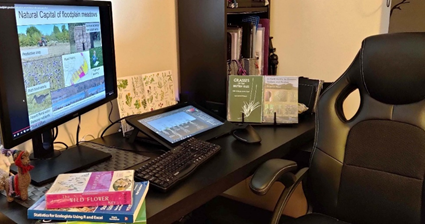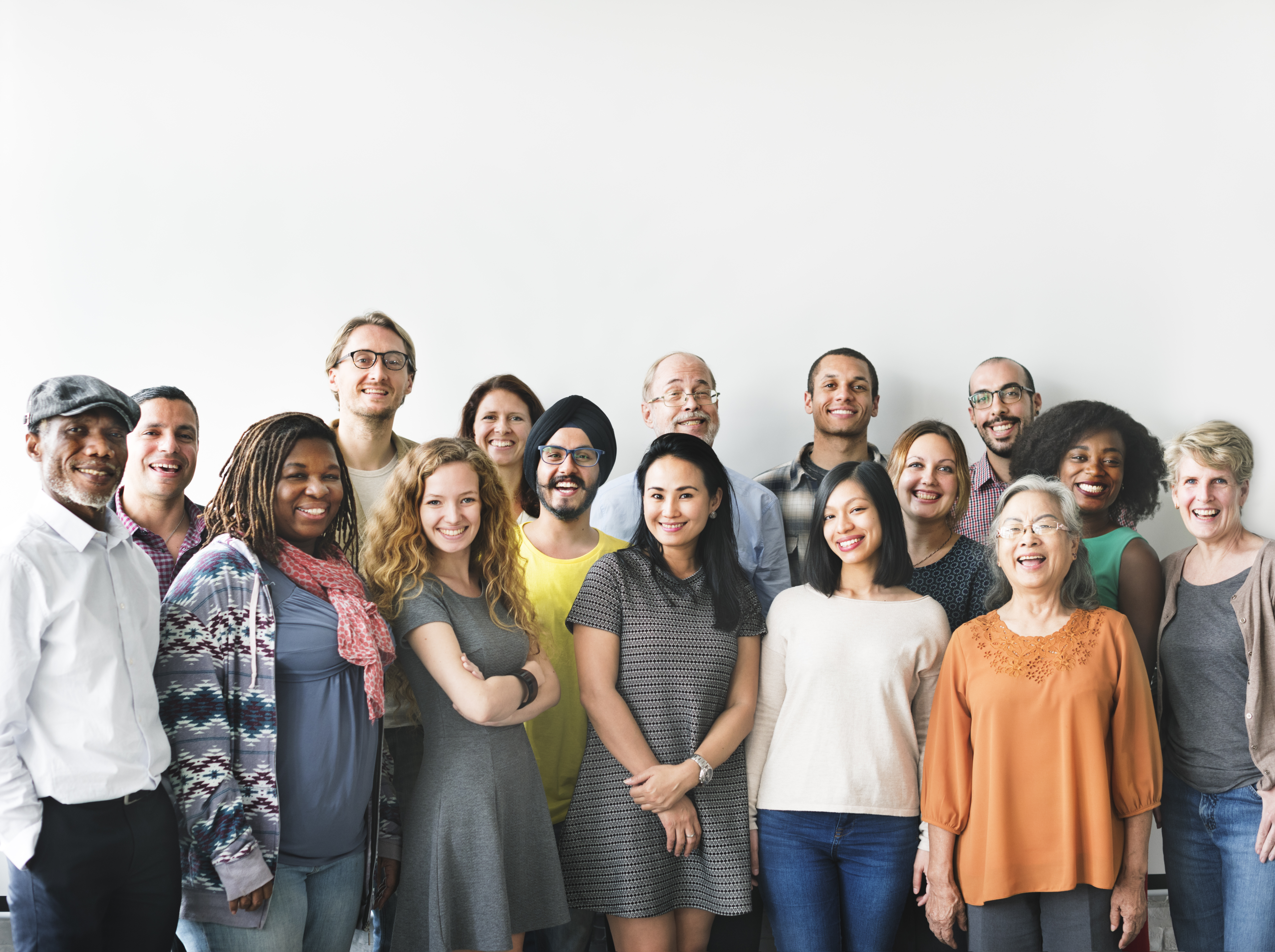Neurodiversity in the Office – by Vicky Bowskill
Desk-based working environments have changed dramatically during the COVID-19 pandemic with the abrupt change to mass homeworking in 2020. And they are set to change again as pandemic restrictions continue to ease. This can bring unique and significant challenges for neurodivergent workers – a fact which is often overlooked. Anxiety is a big part of being neurodivergent in a neurotypical world and fundamental changes to the way we work require sensitivity and flexibility. With only 16% of autistic adults in full time paid employment, despite a majority having a desire to work or work more, allowing for a range of tolerances is a key marker of an inclusive team.
I’m a neurodivergent PhD researcher but I have also worked in many offices in the public, private and third sectors over the years – with mixed success. You can read more about my experience of academic adjustments on Voices of Academia but here I want to focus on office environments. Because, prior to the pandemic, many of us spent more time in the office than we did in our own living room, making them a significant part of our lives. I stress that this is only my perspective and all neurodivergent people have different needs, so make sure you check in with your own team.
Many disabled people have found that the world became a much more accessible place in which to work and learn during the pandemic. This was an unexpected side-effect of the change to online working, enabling people to access work, meetings and events much more easily (or at all) without having to grapple with inaccessible environments and travel. This level of accessibility has been, to use a very tired word, unprecedented. And we are in danger of sweeping those needs back under the rug if we don’t carefully assess the way we evolve our working and learning practices over the coming months and years, rather than simply returning to our familiar old ways.
The challenges of office spaces
Many autistic people find shared office spaces difficult. Sensory sensitivities mean that light, noise, smells and temperature are often chaotic and unpredictable – and never comfortable. Computer screens are often unsuitable, accessibility adjustments may be inflexible or absent and a limited ability to filter sensory input means that sharing space with other people is distracting at best. Large, open-plan offices and hotdesking can be prohibitively painful. All this impacts on our ability to work effectively and limits the opportunity for us to use our talents. These things are often perceived as being ‘fussy’, but we simply have a more sensitive nervous system and these environmental factors can be genuinely distressing. All day, every day. It’s exhausting. But we’re also good at hiding this distress in order to get by, using up limited energies and damaging our wellbeing, often significantly.
During the pandemic, I’ve experienced an extended period of working from home in a space that is set up exactly for my needs for the first time in my life. And I love it. I can have the lights and temperature within my comfort levels. Smells are familiar and any noise from outside is relatively easy to mitigate with noise cancelling headphones. My computer screen is top quality, incorporating eye care technology and my desk and chair suit me perfectly. Because I’ve made sure that they do. Despite some limited efforts by employers to provide a bigger screen or a different chair, no office has ever provided such an ergonomic and accessible working space. Because it’s about so much more than the screen and keyboard – it’s the whole package and you can’t replicate that in a shared office. For the first time I can work without daily headaches and eyestrain – I didn’t even know that was possible. I have been so much more productive, able to use my skills in ways I’ve just not had the energy for before. Having experienced this, I’m understandably not keen to return to those old, inaccessible environments.

Know your adjustments
To be fair, part of the reason I’ve not been better accommodated in the past is because I’ve only learned what truly works for me quite late in the game – and I’m still learning. Not everyone has the option of creating a bespoke ergonomic working space – what I call my ergo-station – at home. It is important to ask disabled people what accommodations they need, but also to recognise that they may not know. And even if they do know, they may not know what is ‘reasonable’ to ask for. It’s easier to know what doesn’t work than what does and some flexible trial and error may be needed to work out the best solutions. Facilitating that could be powerful.
Keeping connected
Team building can be a concern if staff are working remotely and it’s important to recognise the different social tolerances of neurodivergent staff. I have low social needs and am easily overwhelmed by ‘team building’. It can take me days to recover from intense social events. I find scheduled online meetings, ad hoc email interactions and social media are all excellent ways to remain connected to my team. I know many people, neurodivergent or otherwise, miss the social side of being physically at work and have a real need for that. But I think we’ve all seen over the last year or so that work, networking and learning can all progress very satisfactorily online. And there are ways to blend face-to-face and online attendance at meetings and events, so there should be no need to readopt a one-size-fits-all approach.
Flexibility is key to accommodate the full spectrum of people in any team. Up to 100% homeworking and an option of part-time hours may be the only way to properly include a valuable and under-represented part of the workforce. To be a truly inclusive employer it is essential that the needs of the few are not allowed to fade into the background as we work out what our ‘new normal’ will look like.
 Vicky is a PhD researcher investigating the sustainable management of floodplain meadows to balance agriculture and biodiversity. Prior to this she worked as CIEEM’s volunteer coordinator and spent a decade working in countryside access with local government. Vicky is autistic, dyslexic and dyspraxic, all of which fall under the umbrella of neurodiversity, and has only come to fully understand this in recent years. She is passionate about improving inclusivity in education and the workplace. You can find out more about Vicky and her work at www.vickybowskill.com and find her on Twitter at @Vicky_Bowskill.
Vicky is a PhD researcher investigating the sustainable management of floodplain meadows to balance agriculture and biodiversity. Prior to this she worked as CIEEM’s volunteer coordinator and spent a decade working in countryside access with local government. Vicky is autistic, dyslexic and dyspraxic, all of which fall under the umbrella of neurodiversity, and has only come to fully understand this in recent years. She is passionate about improving inclusivity in education and the workplace. You can find out more about Vicky and her work at www.vickybowskill.com and find her on Twitter at @Vicky_Bowskill.
Blog posts on the CIEEM website are the views and opinions of the author(s) credited. They do not necessarily represent the views or position of CIEEM. The CIEEM blog is intended to be a space in which we publish thought-provoking and discussion-stimulating articles. If you’d like to write a blog sharing your own experiences or views, we’d love to hear from you at JasonReeves@cieem.net.
